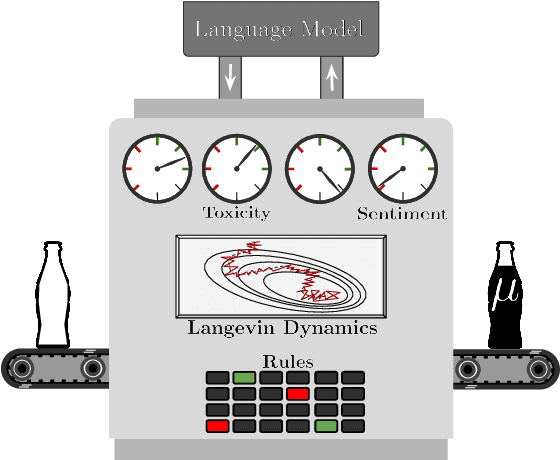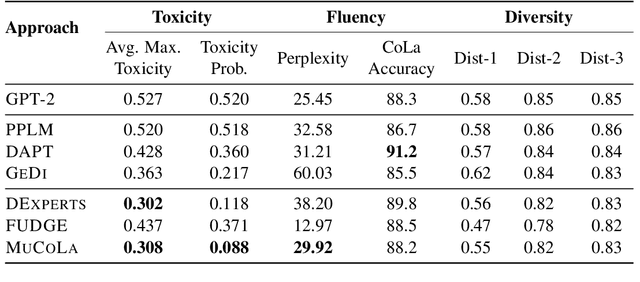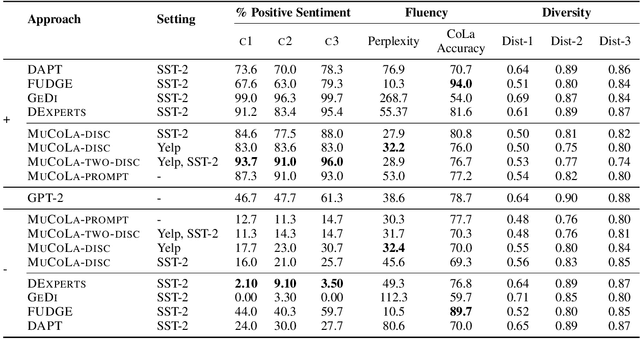Constrained Sampling from Language Models via Langevin Dynamics in Embedding Spaces
Paper and Code
May 25, 2022



Large pre-trained language models are well-established for their ability to generate text seemingly indistinguishable from humans. In this work, we study the problem of constrained sampling from such language models. That is, generating text that satisfies user-defined constraints. Typical decoding strategies which generate samples left-to-right are not always conducive to imposing such constraints globally. Instead, we propose MuCoLa -- a sampling procedure that combines the log-likelihood of the language model with arbitrary differentiable constraints into a single energy function; and generates samples by initializing the entire output sequence with noise and following a Markov chain defined by Langevin Dynamics using the gradients of this energy. We evaluate our approach on different text generation tasks with soft and hard constraints as well as their combinations with competitive results for toxicity avoidance, sentiment control, and keyword-guided generation.
 Add to Chrome
Add to Chrome Add to Firefox
Add to Firefox Add to Edge
Add to Edge